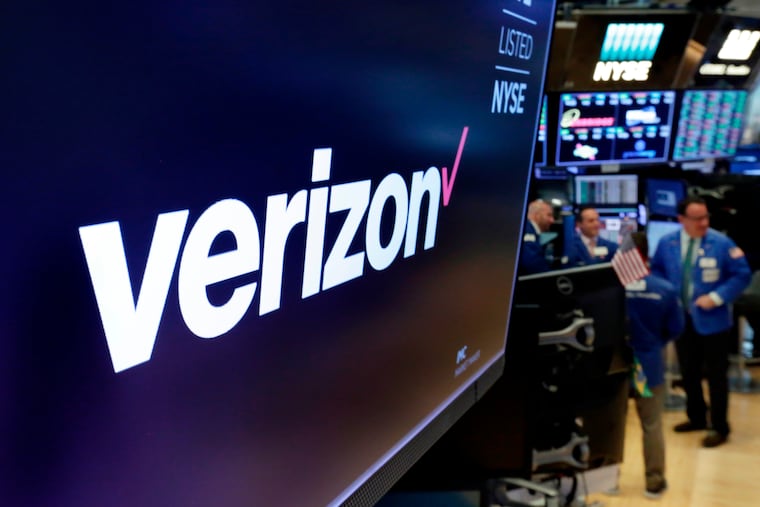‘Runt of the litter’: Why this small N.J. borough’s 10-year fight against Verizon matters
A New Jersey tax court judge handed Verizon a defeat over a local business tax. The verdict is an important one not just for Hopewell, but also about 223 municipalities across New Jersey that collect an estimated $50 million in similar taxes from Verizon.

When Verizon Communications told Hopewell Borough that it no longer had to pay about $40,000 in a local New Jersey business tax because it didn’t meet the market share threshold, Mayor Paul Anzano didn’t believe it.
Almost everyone Anzano knew in Hopewell, population 2,000, still had a Verizon landline — the state requires phone companies to pay business property taxes if the so-called dial tone market share exceeds 51 percent. Anzano thought that Verizon still served at least that proportion of Hopewell.
So began a 10-year trek through the courts that has cost the borough at least $200,000 in legal fees but also brought a hard-earned victory. Last month, New Jersey Tax Court Judge Mary Siobhan Brennan ruled that Verizon must cough up the local business tax after a trial revealed that Verizon had substantially underestimated its market share. Instead of the 44 percent to 48 percent of the borough that Verizon claimed to serve, Verizon’s share was closer to 90 percent, she concluded.
The verdict is an important one not just for Hopewell, but also about 223 municipalities across New Jersey that collect an estimated $50 million in similar taxes from Verizon, which may have been looking at Hopewell as a test case.
Thinking outside the box
“We did our neighbors a huge favor,” an ecstatic Anzano said in a phone interview, referring to the other New Jersey towns watching the case. “We showed the way. We were never mad at Verizon. We knew what they were doing. We did not think we should pass on a revenue stream at the expense of taxpayers.”
To make itself look like a minor phone provider in Hopewell, Verizon included a 450-acre Merrill Lynch office complex three miles outside the Hopewell boundary while calculating its market share, Brennan found at trial. The 10,000 phone lines at the Merrill Lynch office complex in Pennington were served by competitor AT&T — making it seem that Verizon was a small provider in the Hopewell area.
Verizon had no comment. The case is likely to reverberate across the state as hundreds of similar tax cases were stayed — or not acted on in court — as the Hopewell-Verizon case played out.
Edward Purcell, a New Jersey lawyer, said that "this is a much-needed win for New Jersey towns and municipal taxpayers. The court really took Verizon to task for its skewed review of the phone-share numbers. When it comes to taxes, it’s always trust but verify.”
Still, the borough’s elation was muted by a Verizon legal win. Hopewell, in reality, won the case for only one tax year: 2009.
Following Brennan’s late January decision, Verizon continues to challenge that it has to pay the tax for subsequent years, Joseph C. Tauriello, the Princeton lawyer who represented Hopewell Borough, said.
As part of the court decision in the Hopewell case, Verizon can challenge the 51 percent market share each year in the hundreds of New Jersey towns it serves — a huge potential legal liability for municipalities.
Waste of taxpayer resources
Michael Darcy, executive director of the New Jersey League of Municipalities, said that the group was “pleased with the decision” in the Hopewell case. But “some of the enthusiasm is tempered because it took longer than 10 years to resolve one tax year,” Darcy said.
Verizon “will keep arguing each year over how many dial tones they provided within a geographic region,” Darcy said, adding that these possible Verizon town-by-town tax fights in New Jersey would be a “great waste of taxpayer resources.”
Hopewell Borough paid $200,000 in legal fees to protect about $500,000 in tax revenue from Verizon, Anzano said. “Verizon has $3 million to spend on coffee cups and [cup warmers], and we have a $3 million [borough] budget. I think we were being picked on,” he said. “They were bleeding us to death in legal fees.”
Echoing a complaint heard around the state, Darcy said that “Verizon should not be the setting their own numbers” to determine whether and how much local taxes they owe municipalities. “We think the Legislature has to clean this up.”
Calculating market share
Central to the Hopewell-Verizon case was whether Verizon should use geographic boundaries in “local phone exchanges” to determine market share or whether it could use phone numbers, which don’t adhere to strict geographic areas.
Verizon claimed that it should use phone numbers. After the 609 area code, Verizon said that the three-digit prefixes 274, 309, 333, 466, 527, 564, 639, 644, 925 and 979 were part of Hopewell. The Merrill Lynch complex used the 274 prefix.
But Hopewell contended that Verizon had to use physical maps on file with the state and federal regulators to determine market share — not telephone number prefixes.
"We sought to hold Verizon to its own tariff map and product guide,” Tauriello said. “A local exchange must be defined by a geographical boundary. Using Verizon’s definition, they could not draw with a Sharpie [marker] their definition of a local exchange on a map,” he said.
The judge agreed with Hopewell.
And as the mayor of a little borough north of Trenton, Anzano believed that Verizon chose Hopewell a decade ago as the “runt of the litter” of New Jersey towns, believing it would not fight back over the tax. The borough showed the company it could stick it out, Anzano said.